
News
News Flash: Memory Shop and Anime Zakka to Open in Harvard Square

News
Harvard Researchers Develop AI-Driven Framework To Study Social Interactions, A Step Forward for Autism Research

News
Harvard Innovation Labs Announces 25 President’s Innovation Challenge Finalists

News
Graduate Student Council To Vote on Meeting Attendance Policy

News
Pop Hits and Politics: At Yardfest, Students Dance to Bedingfield and a Student Band Condemns Trump
Artist Feature: Zedd Wants to Create Timeless Music that Transcends Trends
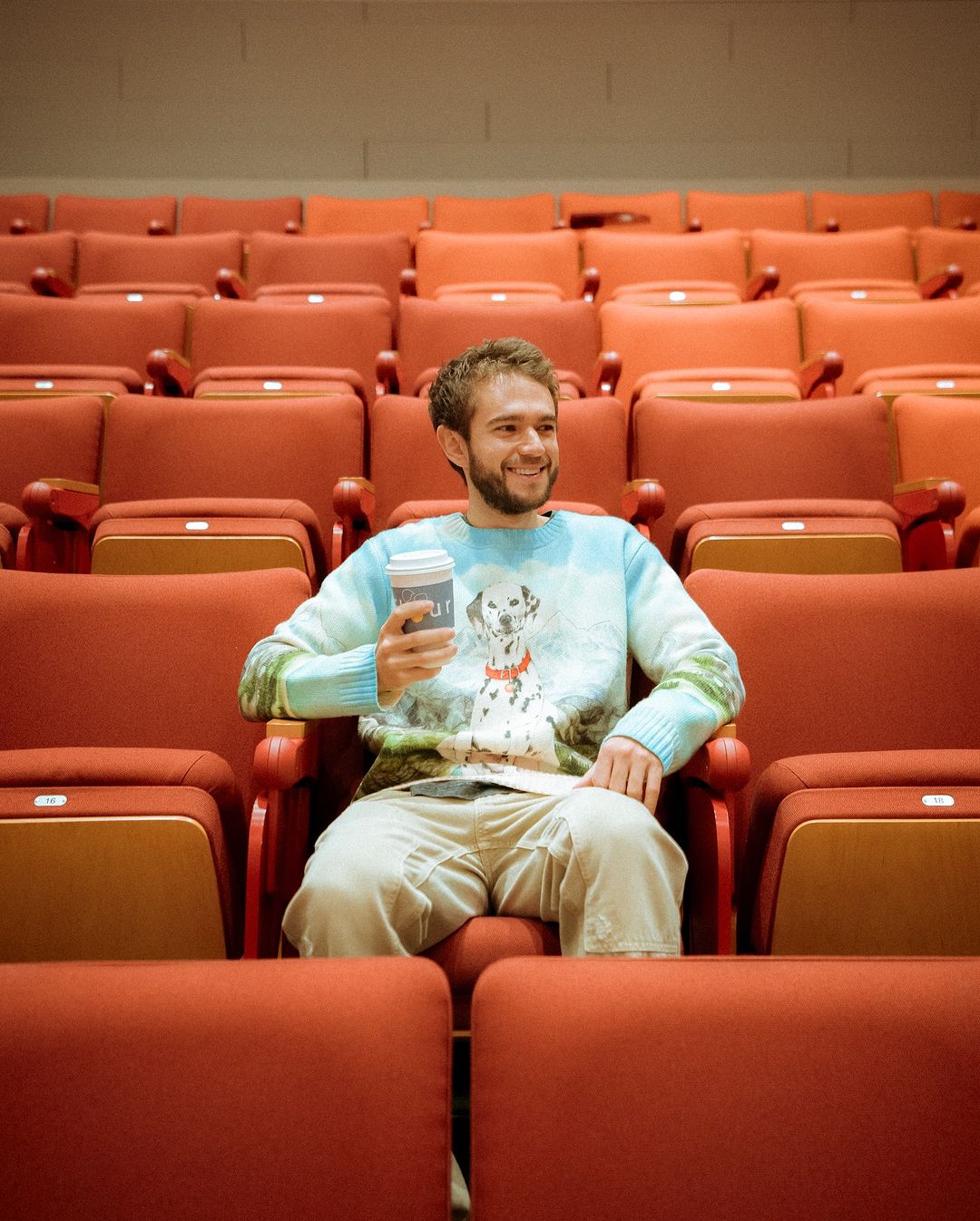
On Sept. 20, Zedd took a detour from his sold-out show at Boston’s MGM Music Hall to visit Harvard’s campus and sit down with students to talk about his musical journey and the process of producing his new album, “Telos.”
In the 2010s, it seemed like Zedd was on top of the world: Every song he released inevitably became a global sensation. His first album, “Clarity,” spawned the multi-platinum records “Stay the Night,” “Spectrum,” and the album’s namesake “Clarity.”
For his next series of singles, he drifted towards a more pop-friendly sound, churning out more blockbuster hits, including “I Want You to Know,” “Stay,” “The Middle,” and “Break Free,” a song performed with Ariana Grande. Along the way, he received five Grammy nominations and won one.
He certainly kept himself busy. However, it took him 9 years after the release of his 2015 album, “True Colors,” before he finally released a follow-up album, this year’s “Telos.”
The delay was due in part to his thorough and precise nature. From the way that Zedd described obsessively supervising every part of the song production process, it was clear that has at least a mild case of perfectionism. After such a long hiatus, he wanted to ensure that his next album would be meaningful, with a goal of transcending trends and creating something timeless.
To understand how we arrive at “Telos,” however, it’s first important to understand Zedd’s defining moments.
If he seems like a perfectionist today, his workaholic attitude was far more pronounced at the beginning of his career. After moving to Los Angeles, Zedd started off by producing music for Lady Gaga. When he inevitably found himself with plenty of leftover studio time, he worked on material that would eventually become the “Clarity” album.
It was during this period of his life that he worked 12 hours a day and took only two days off in a whole year. If he wasn’t in the studio, he was on tour. This lifestyle came with plenty of disadvantages; even the picture frames in his apartment were filled with the preconfigured stock photos of unfamiliar faces. “Even though I got a lot done, I left my personal life behind,” he said.
However, it’s not like those laborious efforts were to no avail. Zedd credits those initial toils to the early accomplishments that he saw at the start of his career. “I’ve overworked myself drastically, but to be completely transparent, I think a lot of success came from overworking myself at the beginning of my career,” he said.
Eventually, he found his work-life balance groove. These days, his schedule looks very different from those earlier times; he places a much greater focus on prioritizing mental and physical health. “I work for about six hours, and that’s it.” After that, he eats dinner, works out, and plays video games: “I just try to shut my brain off.”
For Zedd, this keeps the work fresh. Whereas he previously loathed having to work each twelve-hour day, his new workdays keep the process exciting and even enjoyable.
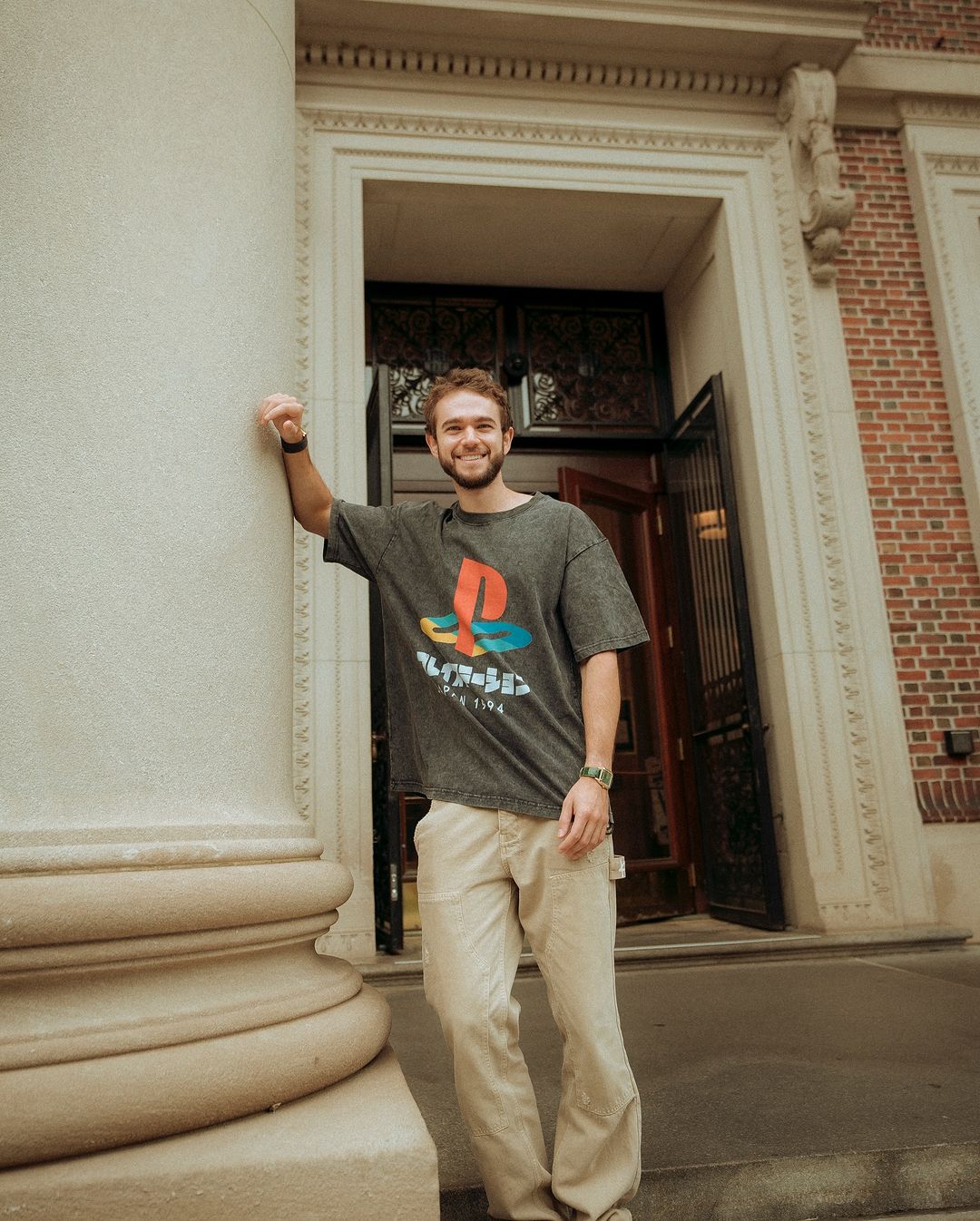
So an artist grows over time. But a lot more than just his creative process has changed since he’s been on the scene. At this point in his career, Zedd is somewhat of an industry veteran, witnessing — and sometimes heralding — the stylistic change of EDM over the better part of the last decade. Reflecting on the way that the industry has transformed, he offered a cautious assessment of today’s algorithm-driven musical landscape.
As Zedd put it, when he was first getting started, he simply uploaded songs to MySpace and was thrilled if they got a hundred plays. When his first upload reached a thousand plays, he knew that he was doing something right.
In this media environment, “The quality of music was the main driver and could catch you a lot of attention,” said Zedd. Something unique and different could give people a reason to listen.
That’s not always true anymore. The music business is increasingly dominated by trends and algorithms, explained Zedd, who didn’t mince words: “I think they’re too powerful.” Broadly, Zedd alleged that the predictive computation of social media has fostered a regression to the mean, forcing many artists to forgo a more individualistic spirit to their sound.
“Nobody wants to be left out by the advantage that the algorithm can give you, so everybody ends up making the thing that pleases the current algorithm the most,” said Zedd.
As for trend-hopping, he is not a fan. “It goes against everything that I stand for,” said Zedd. “As an artist, I just want the music to do the talking. I don’t really want to film myself making videos about it.”
In case it wasn’t clear enough, Zedd “really hates making TikToks.”
The situation caused him to recall an incident back when he wasn’t nearly the star he is today:
“When I made Clarity, and it wasn’t quite done yet, I sent a really cocky email to somebody at my label. I was like, ‘Here you go. This is it — this is what the world is gonna need,’ a year before it came out. Today, if I’d sent that exact same email with the same song, the response would have been, ‘What kind of creator could we get to do a dance to this?” And that’s just so against what I love about music and the feeling it can create, and the power it has,” said Zedd.
But it wasn’t only critical words that he had for the music industry. Zedd made sure to cite some of the positive effects that social media has generated for various artists’ careers. In particular, he mentioned an example of a “masked DJ, producer,” who recently got his first show in Vegas. Zedd had previously seen him blow up by making “videos and mashups” on various online platforms. “He kinda started as a social media project, I assumed, and turned into a career,” said Zedd.
Moreover, there’s an unexpected silver lining to the algorithm-driven funneling of uniformity. In a world where everyone sounds the same, it's easier to forge your own melody and stand out. His advice for musicians?
“Being different and being yourself still prevails, and is the most important thing in making any sort of art,” said Zedd.
Outside of the general stylistic guidance, Zedd had plenty of practical advice for fledgling electronic musicians too.
His music production software of choice is Cubase, a platform that arose in his life purely as the result of path dependency. Back when Zedd was in a German death metal band, he won a competition for free studio time, where the sound engineer happened to use Cubase. It’s been twenty years, and he hasn’t looked back since.
For a beginner, though, any software will do. As he put it, Ableton, FL, or Cubase are all the same. “They all steal from each other. Which means that whatever you decide to use, you will have all the same tools,” said Zedd.
Another piece of advice was unusually acoustic in nature: “Learning to play an instrument is so unbelievably helpful.” Zedd used the example of skilled musicians who can be placed into a room at random, and improvise beautiful music, without any prior knowledge of the genre, BPM, or other indicators.
“Knowing music and the language of music is going to be your most important tool,” said Zedd. This comment hinted towards his background as a classically-trained musician, rooted in his early musical education as a child.
Zedd also recommended creating remixes as a way for beginners to become known.
“People love the songs that they love, and you give them a new version; it’s awesome,” said Zedd. Zedd likened the experience to being able to “put your stamp of DNA over that song that they like.”
Throughout the conversation, Zedd implored young artists to think about the spaces they wanted to find and carve out for themselves.
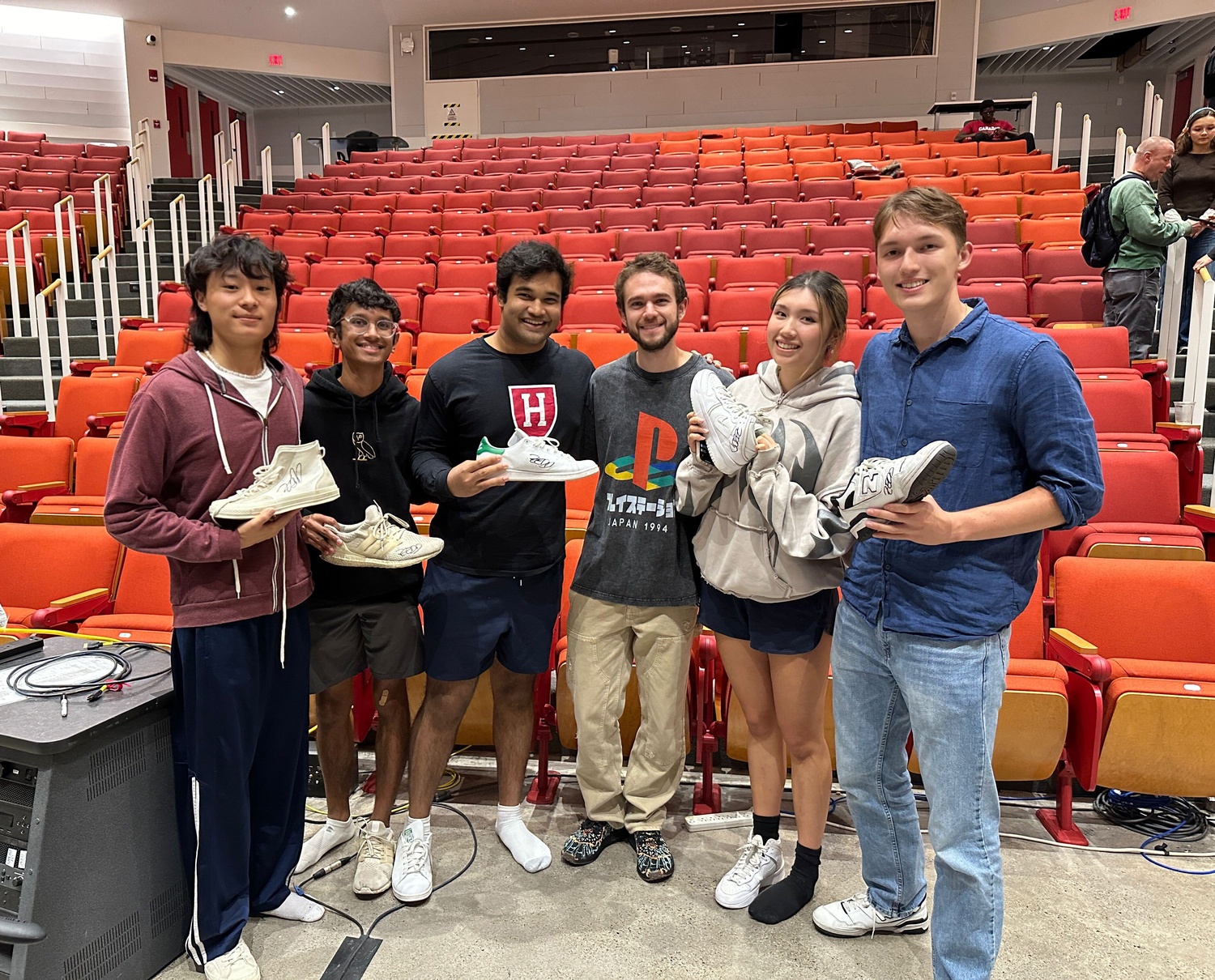
Certainly a man of his word, Zedd even showed a personal unwillingness to dip into the popular sound of the moment, whether that be “trap, deep house, or Afrobeats.” He belabored the tendency of musicians, new and established, to fall into trendy sounds for an easy win.
“You might have a quick hit and you might be successful for a second, but your song that might go viral will be completely disconnected from the artist,” said Zedd.
Instead, Zedd shared that it is important to understand your “acoustic and visual DNA” as an artist. “That’s gonna make you survive all those trends, all those waves, and give you a really long lifetime,” said Zedd.
Zedd’s longtime friend and manager, Dave Rene, echoed these sentiments. “That’s what Anton does best with his music. He’s not making dance music. He’s just making his music.”
Zedd’s unwillingness to be easily influenced by others was even evident when asked about his favorite songs. He started off with a safe choice, citing “Bohemian Rhapsody” as a classic. The artists Willow and Lizzy McAlpine also received shoutouts. Then, in a bolder move, Zedd nominated the olllam as one of his favorite bands. Zedd shared that he discovered the group during a fateful night, when Zedd came to the conclusion: “that’s as good as music will get.” He liked them so much that he secured the band for a collaborative track on “Telos.”
Between studio sessions, writing songs, and producing his album, Zedd admitted to not listening to much of anything at all during the last three years. “When I wasn’t making music, I was very happy to hear silence,” said Zedd.
It’s this ethos, of timelessness and an ability to live beyond the contemporary moment, that ultimately defines Zedd’s ambitions for his newest album, “Telos.”
Between the years of 2016 and 2020, Zedd was primarily focused on releasing one-off singles, since it wasn’t as “hard and stressful” as a full album release.
Using a plane’s flight as a metaphor for a career, Zedd explained that once you’ve taken off into the air, “at some point the plane will need to land or fuel, so you're gonna need to feed it something. And if it's not an album, it's gonna be a single,” said Zedd. Zedd shared that there is always studio pressure to keep releasing.
For “Telos,” however, Zedd really took his time. After waiting so long after his 2015 album, “True Colors,” he figured, “What difference does seven, eight, or nine years make at that point?”
“I took as much time as I needed to be creative and do fun stuff,” said Zedd. With that time, he could do things like replacing all of the hi-hats sampled from a drum kit with hi-hats recorded live. Or going to Best Buy to find $4 shakers, which ended up being the “best-sounding shaker ever.” They can be found all across his album.
Zedd was emphatic that, in order to “make an album that is really more on the experimental side of things,” he had to take “quite a few years.”
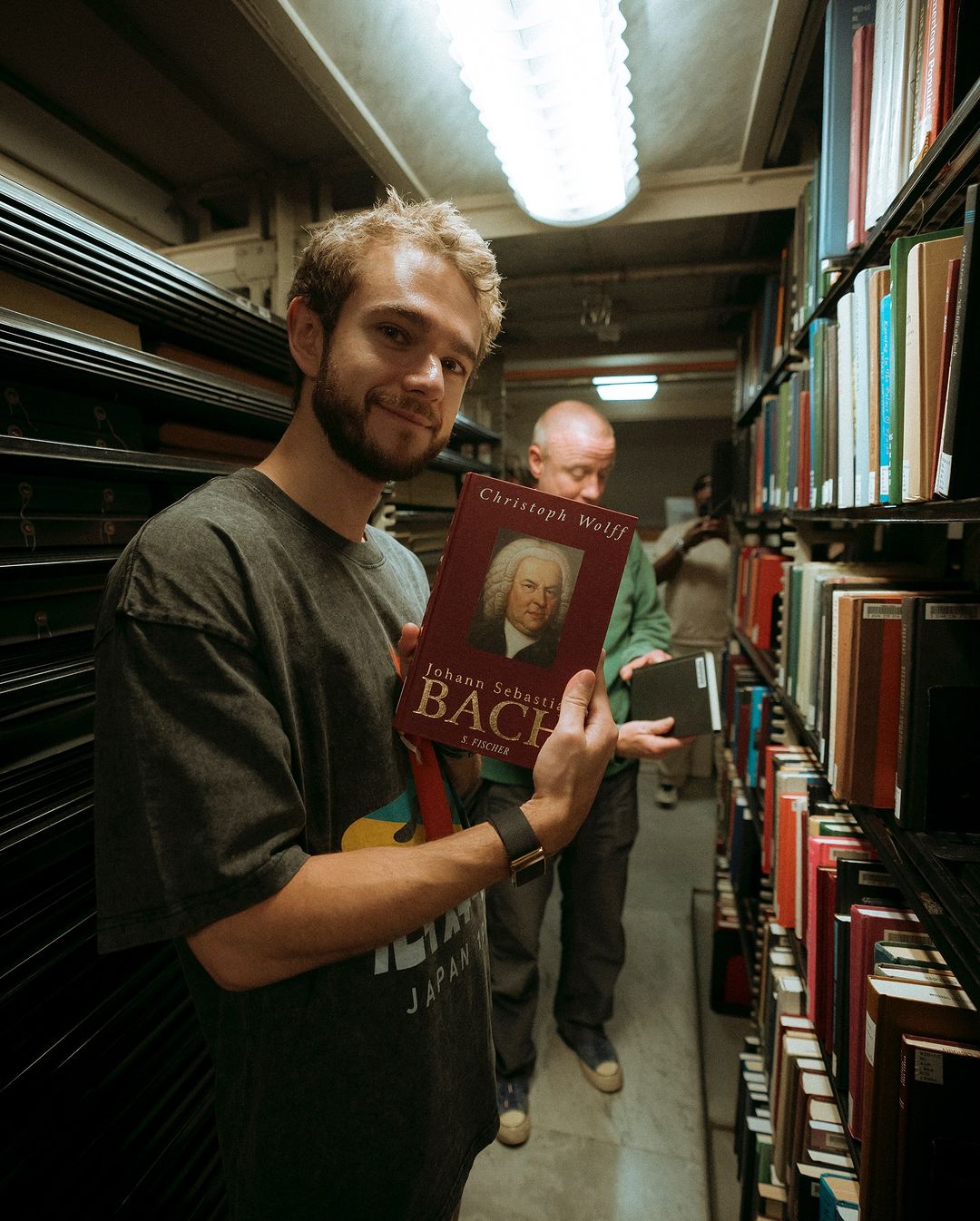
As a peek into the experimental nature of his work, Zedd shared part of the creative process that shaped “Telos.” Surprisingly, even after years of being an electronic musician, his artistic approach is still inspired by his early years as a classically trained musician. “I play piano, and I just feel creative,” said Zedd.
There’s almost a séance-like quality that Zedd describes being able to communicate with the music. “When you improvise and play piano, it’s not like anybody knows what I'm gonna play. You just play. You close your eyes and shut off your mind, and whatever you're feeling, your fingers express on the piano,” said Zedd.
For Zedd, the chord progression and melody always come first. And they’re almost always inspired by riffing on a piano. It’s like “listening to your own thoughts,” said Zedd.
It’s clear that this experimentation is one of his favorite parts of making music. But it becomes harder the bigger you get. “That’s the trickiest part of being an active and successful musician,” said Zedd.
He thought back to his early days when making the song “Spectrum,” which only took him a week to put together. Today, that same process, “twelve years ago, plus inflation,” would “take like eight years.” Success has been a double-edged sword because now there’s pressure from labels and expectations from fans.
“Every decision you make, in the back of your head, is like, ‘Do I know what people like?’,” said Zedd.
For “Telos,” Zedd had to push past the expectations of others and return to his roots of experimenting. As he put it, “Experimenting, really, that’s where the magic happens. And I think that’s partially why Clarity is magical.”
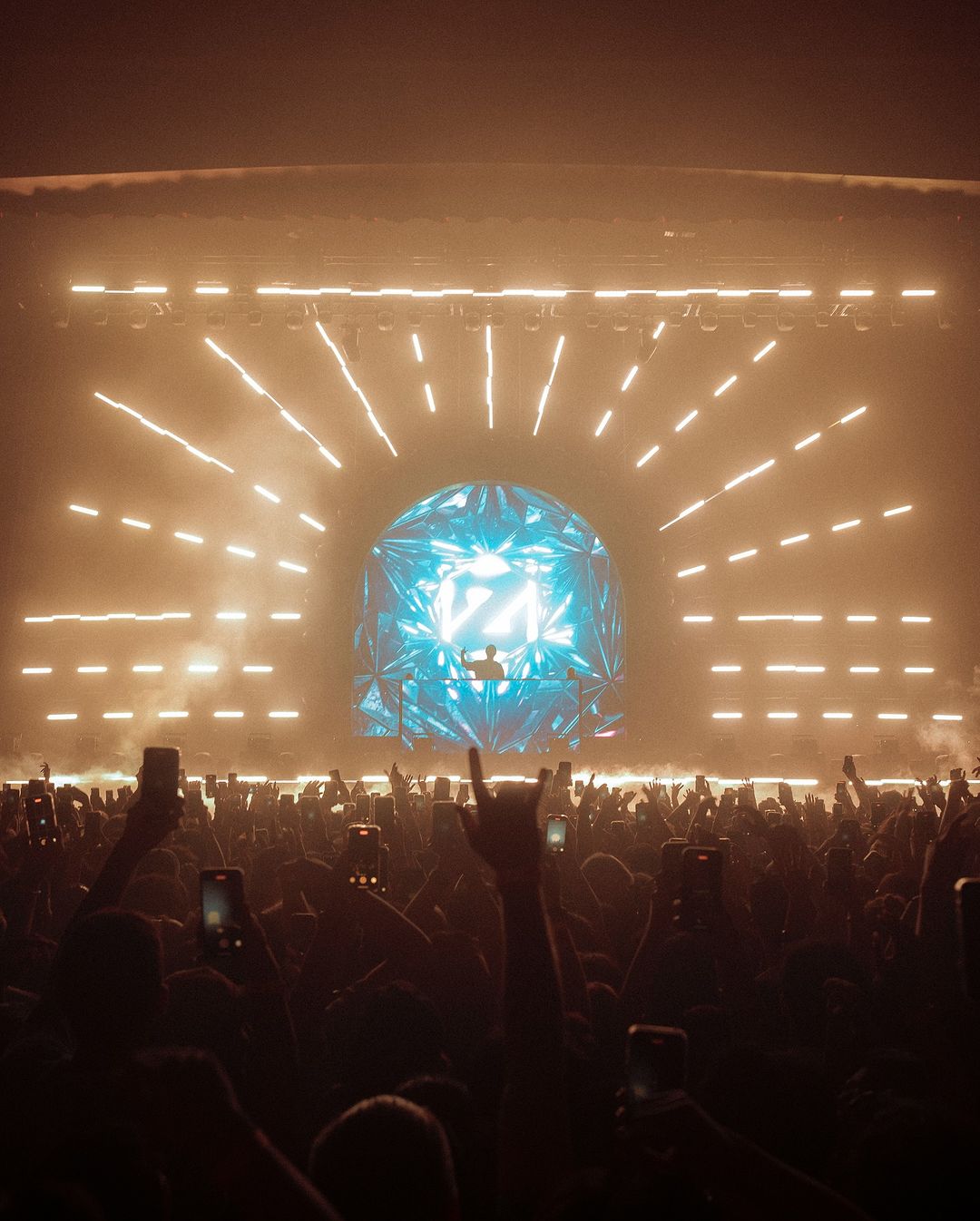
It might be why, despite all of the change he’s been through, Zedd’s favorite song to play in his concerts is “Clarity.” It's been twelve years since the song’s release, and the reaction from crowds has always been the same.
Until, about two years ago, Zedd added a piano introduction at the beginning of the song. By his account, it was “really a minor change.” But it completely transformed the feel of the song. These days, people become wildly emotional upon hearing the piano notes. There is some innate and subconscious chord that the music strikes, which resonates so viscerally with listeners. Even in Vegas, at a day pool party, where party-goers are usually in high spirits, Zedd found that upon playing the build-up to “Clarity,” people began to sob all around him.
Now, he says, “I see people cry every time.” The music must evoke some deep-seated memories, feelings, and thoughts that compel listeners to tears. It might be one of the stranger sights at a festival or rave, but perhaps it speaks to the lasting emotional impact that his music has had on a generation of people.
Zedd seeks to make timeless tracks with his new work. But it seems like he’s already done that.
—Staff writer Derek Yuan can be reached at derek.yuan@thecrimson.com. Follow him on Twitter at @ByDerekYuan.
Want to keep up with breaking news? Subscribe to our email newsletter.
From Our Advertisers

Over 300+ courses at prestigious colleges and universities in the US and UK are at your disposal.

Where you should have gotten your protein since 1998.

Serve as a proctor for Harvard Summer School (HSS) students, either in the Secondary School Program (SSP), General Program (GP), or Pre-College Program.

With an increasingly competitive Law School admissions process, it's important to understand what makes an applicant stand out.

Welcome to your one-stop gifting destination for men and women—it's like your neighborhood holiday shop, but way cooler.

HUSL seeks to create and empower a community of students who are seeking pathways into the Sports Business Industry.
